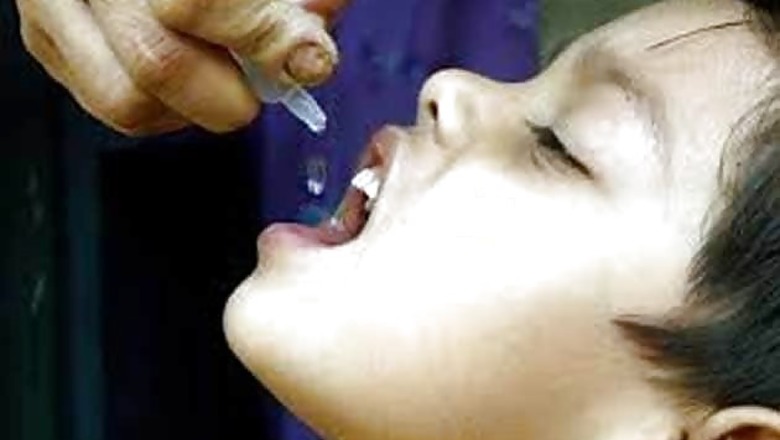
views
New Delhi: India will today celebrate its first World Polio Day after it completed three consecutive years without any reported polio case. It is indeed a landmark success for a country which reported an estimated 2 lakh cases before the launch of Global Polio Eradication Initiative in 1988. Even in 2009, the virus was far from defeat with India reporting half of world's polio cases i.e 741 out of 1604 cases worldwide. Historically, India was seen as the main source of polio importation for other countries. But today, the situation has completely changed with growing interest in preventing the re-emergence of the virus.
Even as India defeated Polio, the country is home to the largest number of child deaths in the world with almost 1.4 million children dying every year due to mostly preventable diseases. Apparently, pneumonia and diarrhea alone kills more than 4 lakh children under five every year. The sheer numbers show that these two preventable diseases cause almost double the causality that polio caused even before the Global Polio Eradication Initiative in 1988. India's Polio experience is one of its kind but have we learnt anything from it?
India's journey from an endemic to a country with zero case has been a long and arduous one. It involved people from different walks of life including government officials, health workers, social mobilizers, opinion leaders and most importantly parents who would take the final decision to vaccinate their child. According to Ministry of Health and Family Welfare, each National Pulse Polio Immunization round involves the vaccination of 17.2 crore children under the age of five years. This scale of outreach was definitely not achieved in a day given that India had its own set of challenges. The Indian government was dealing with world's largest accumulation of children under the age of five years with high birth rate on one hand and low nutrition levels, poor sanitation, inaccessible terrain and most importantly reluctant population which would sometimes turn hostile, on the other.
The first large scale pulse polio campaign was launched in Delhi in the year 1994 when over a million children under the age of three years were immunized in a day under the leadership of then Delhi State Health Minister Dr Harsh Vardhan. Just a year later, national immunization day was held where almost 88 million children were immunized. However the reach was still not enough to make India a polio-free country. Therefore in 1997, the National Polio Surveillance Project was set up to identify polio cases and in 2001 the Social Mobilization Network (SMNet) was established to mobilize the community. But the most significant aspect of this campaign was the support of opinion leaders like celebrities, religious leaders and doctors.
The polio experience is a classic example of how health solutions can be found through a concerted effort of various sections of the society. I say this because we are still battling to save the life of our children but the urgency is not felt by the masses.
When celebrities like Amitabh Bachchan, Shah Rukh Khan and MS Dhoni gave their voice to the cause of Polio, it was hard for people to not believe them. When a part of the Muslim community refused to accept polio vaccines, the government and its partners reached out to imams who would urge them to look at ways of tackling polio. Those voices are going to be the backbone of any future campaign as well.
In July earlier this year, the Indian government announced its plans of including four new vaccines in its Universal Immunization Programme namely vaccines against rotavirus, rubella, polio (injectable) and also Japanese encephalitis in select districts. It is now imperative that the government and its partners now looks at a comprehensive plan to reach out to the people and explain to them that we need to join hands in saving the lives of our children. This would require extensive involvement of people from all walks of life; from celebrities, religious leaders, gurus to pediatrics, local chemists. On this World Polio Day, let's take a pledge that we will battle other preventable diseases and battle fast because every day we are losing 3836 lives of children less than five years of age.
(Altamash Hashmi is a Senior Programme Associate at Global Health Strategies, New Delhi)
















Comments
0 comment